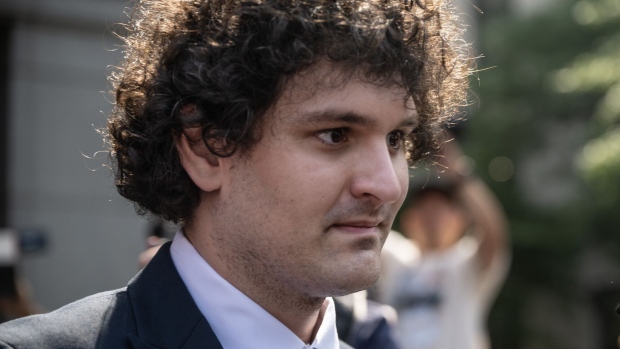Aug 1, 2023
Bankman-Fried Claims Jailing Him Would Violate Free-Speech Right
, Bloomberg News

(Bloomberg) -- FTX co-founder Samuel Bankman-Fried claims that revoking his bond and jailing him for speaking with a newspaper reporter would violate his free-speech rights.
US prosecutors asked a judge last week to revoke Bankman-Fried’s $250 million bond after the New York Times published a story that quoted excerpts from a diary written by Caroline Ellison — the former CEO of Alameda Research, FTX’s hedge fund affiliate, and Bankman-Fried’s former girlfriend. She has pleaded guilty to fraud and is cooperating with prosecutors.
After the New York Times article was published, prosecutors accused Bankman-Fried of providing the quoted diary entries to the paper and talking to the reporter who wrote the story. They claimed he was trying to intimidate Ellison, who may be called as a witness at his trial, and taint the jury pool.
In a letter Tuesday to US District Court Judge Lewis Kaplan, Bankman-Fried’s lawyers pushed back.
“Mr. Bankman-Fried’s contact with the New York Times reporter was not an attempt to intimidate Ms. Ellison or taint the jury pool. It was a proper exercise of his rights to make fair comment on an article already in progress, for which the reporter already had alternate sources,” Bankman-Fried’s lawyer Mark Cohen wrote.
Detaining Bankman-Fried because he talked to a reporter raises “serious” First Amendment issues, Cohen said.
“As the government concedes, criminal defendants have a right to talk to the press about their case to influence their public image and try to protect their reputation, as long as the communications are not calculated to pervert the course of justice,” Cohen wrote.
Bankman-Fried, 31, was charged in December with crimes including conspiracy and wire fraud for allegedly misusing billions of dollars of customers’ funds before the spectacular implosion of the FTX crypto empire.
He has pleaded not guilty.
Bankman-Fried has been living under house arrest at his parent’s home in California. Visitors to the house must hand in their electronic devices to a security guard at the front door, and his internet usage is heavily monitored. He was banned from using encrypted messaging apps and contacting witnesses.
The case is US v. Bankman-Fried, 22-cr-673, US District Court, Southern District of New York (Manhattan).
©2023 Bloomberg L.P.





